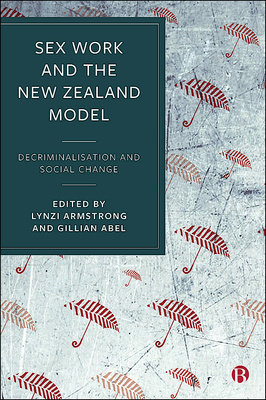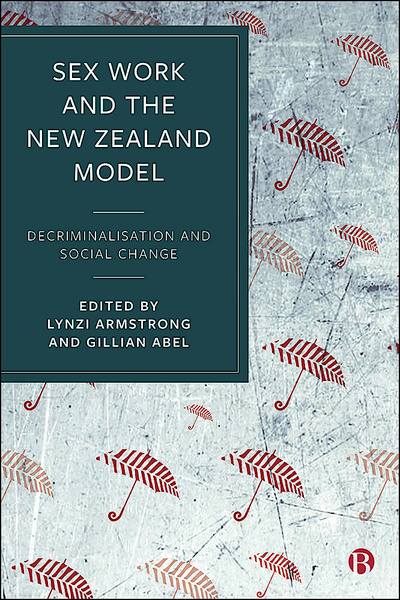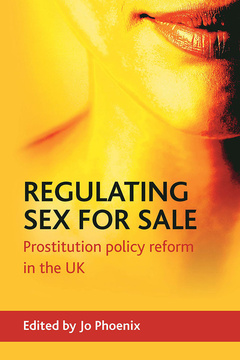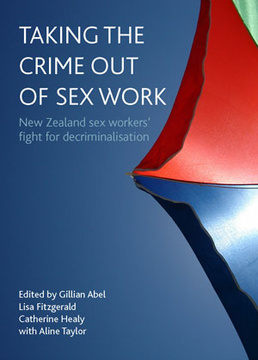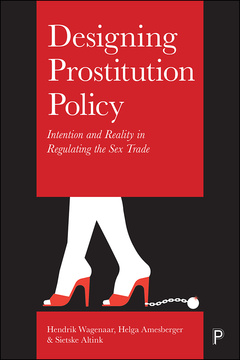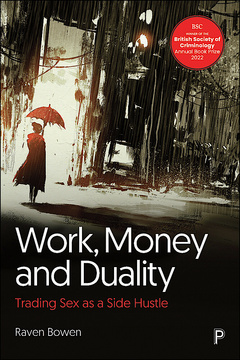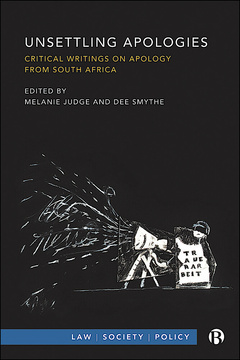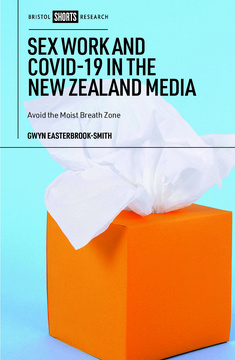Sex Work and the New Zealand Model
Decriminalisation and Social Change
Edited by Lynzi Armstrong and Gillian Abel
Published
Jul 14, 2021Page count
244 pagesISBN
978-1529205817Dimensions
234 x 156 mmImprint
Bristol University PressPublished
Jul 22, 2020Page count
244 pagesISBN
978-1529205763Dimensions
234 x 156 mmImprint
Bristol University PressPublished
Jul 22, 2020Page count
244 pagesISBN
978-1529205787Imprint
Bristol University PressPublished
Jul 22, 2020Page count
244 pagesISBN
978-1529205787Imprint
Bristol University Press
Video supplied by Depot Artspace, a creative hub in Auckland, NZ (depotartspace.co.nz)
In the media
On our blog: Why legal rights and respect for sex workers are paramount during times of crisis
More than 15 years have passed since the law regarding sex workers in New Zealand has changed. As a model it has been endorsed as best practice by international organisations, leading scholars and sex worker-led organisations. Yet in some corners, speculation is ongoing regarding its impacts on the ground.
Written by an international group of experts, this groundbreaking collection provides the much needed in-depth research into how decriminalisation is playing out in sex workers' lives and how different groups of sex workers are experiencing it, while uncovering the challenges and tensions that remain to be negotiated in this field.
Using the evidence from New Zealand, it makes an invaluable contribution to the international debates regarding sex work laws and the global struggle to realise sex workers' rights.
"A significant collection written by scholars, activists and sex workers which debunks the myths of decriminalisation. It critically engages with the impact of the New Zealand model, a huge part of the global decriminalisation movement." Teela Sanders, University of Leicester
"This is an original contribution to the debates on New Zealand’s decriminalised regime. The authors present an innovative examination of a legal model with international appeal.” Jane Scoular, Strathclyde University
Lynzi Armstrong is Senior Lecturer in Criminology at Victoria University of Wellington.
Gillian Abel is Professor and Head of the Department of Population Health at the University of Otago.
Introduction ~ Lynzi Armstrong and Gillian Abel
Part I ~ Legislative Change in New Zealand
‘On the Clients’ Terms’: Sex Work in New Zealand Before Decriminalisation ~ Jan Jordan
Stepping Forward Into the Light of Decriminalisation ~ Dame Catherine Healy, Annah Pickering and Chanel Hati
The Future of Feminism and Sex Work Activism in New Zealand ~ Carisa R. Showden
Part II ~ The Diversity of Sex Workers in New Zealand
The Impacts of Decriminalisation for Trans Sex Workers ~ Fairleigh Gilmour
Fear of Trafficking or Implicit Prejudice?: Migrant Sex Workers and the Impacts of Section 19 ~ Lynzi Armstrong, Gillian Abel, and Michael Roguski
“My Dollar Doesn’t Mean I’ve Got Any Power or Control Over Them”: Clients Speak Out About Purchasing Sex ~ Shannon Mower
Part III ~ Perceptions of Sex Workers in New Zealand
"Genuinely Keen to Work": Sex Work, Emotional Labour, and the News Media ~ Gwyn Easterbrook-Smith
The Disclosure Dilemma: Stigma and Talking About Sex Work in the Decriminalised Context ~ Lynzi Armstrong and Cherida Fraser
Contested Space: Street-based Sex Workers and Community Engagement ~ Gillian Abel







